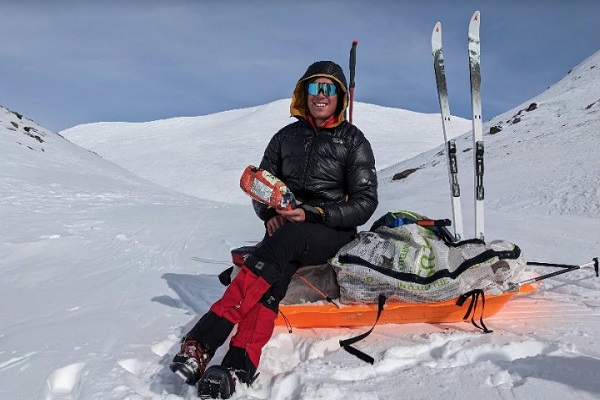
Gaining a Northern worldview with the GENI Program
For Kent Bretzlaff, the GENI program ticked all the boxes. The ease of online learning meant he could continue living in the North and gain a multidisciplinary skill set in the circumpolar region.
By UiT The Arctic University of NorwayWhy did you choose to study the GENI program at UiT/USask?
I chose the GENI program because I always wanted to go on a ski trip in Norway and I figured why not add some education to the mix!
Jokes aside, after years of research, the GENI program was the first program that checked all the boxes for me. I was looking for a program that I could do by distance as I worked and lived in the North and that would provide exposure to a range of multidisciplinary topics from across the circumpolar region.
What do you think about the program?
The GENI program had it all. The course based portion helped me build foundational skills in policy, the applied research project developed my understanding of how to co-develop research and the thesis brought everything together as I endeavoured to balance worldviews and create a meaningful co-develop research product. Having a background in engineering, the GENI program was exactly what I was looking for, since I wanted to develop a new policy skill-set to support my technical background.
What is it like to be a student at the GENI program?
Like all experiences, the outcome is usually very dependent on the people you share it with. The cohorts I interacted with during my GENI experience, were all fantastic and the main reason I was successful in completing the program was because of my classmates.
Working full-time and studying part-time does create quite a bit of chaos. Luckily for me, the GENI program understood this and the faculty was there to support me in balancing school and work.
What are your plans for the future?
After completing post-secondary academia via the GENI program, I am excited to take my learning back to the work I do here in Yukon. Developing a multidisciplinary skill-set in the circumpolar region has allowed for great opportunities in both my social and professional life.
With no intention to leave the circumpolar region, my future looks like a fun mix of northern adventures as I continue to learn in the professional realm that intersects environmental and Indigenous governance.
How has GENI enhanced your career?
The GENI program has given me the opportunity to learn from my neighbours who allow me to enjoy life in their Traditional Territory. Throughout my applied research project and thesis, I was incredibly fortunate to learn from the Carcross/Tagish First Nation.
Their teachings enabled me to meaningfully understand a worldview that was different from what my previous western education promoted. I see this as an enhancement to my life in Yukon more so than my career but as a result, I also notice a positive change to how I approach my day to day work priorities.

